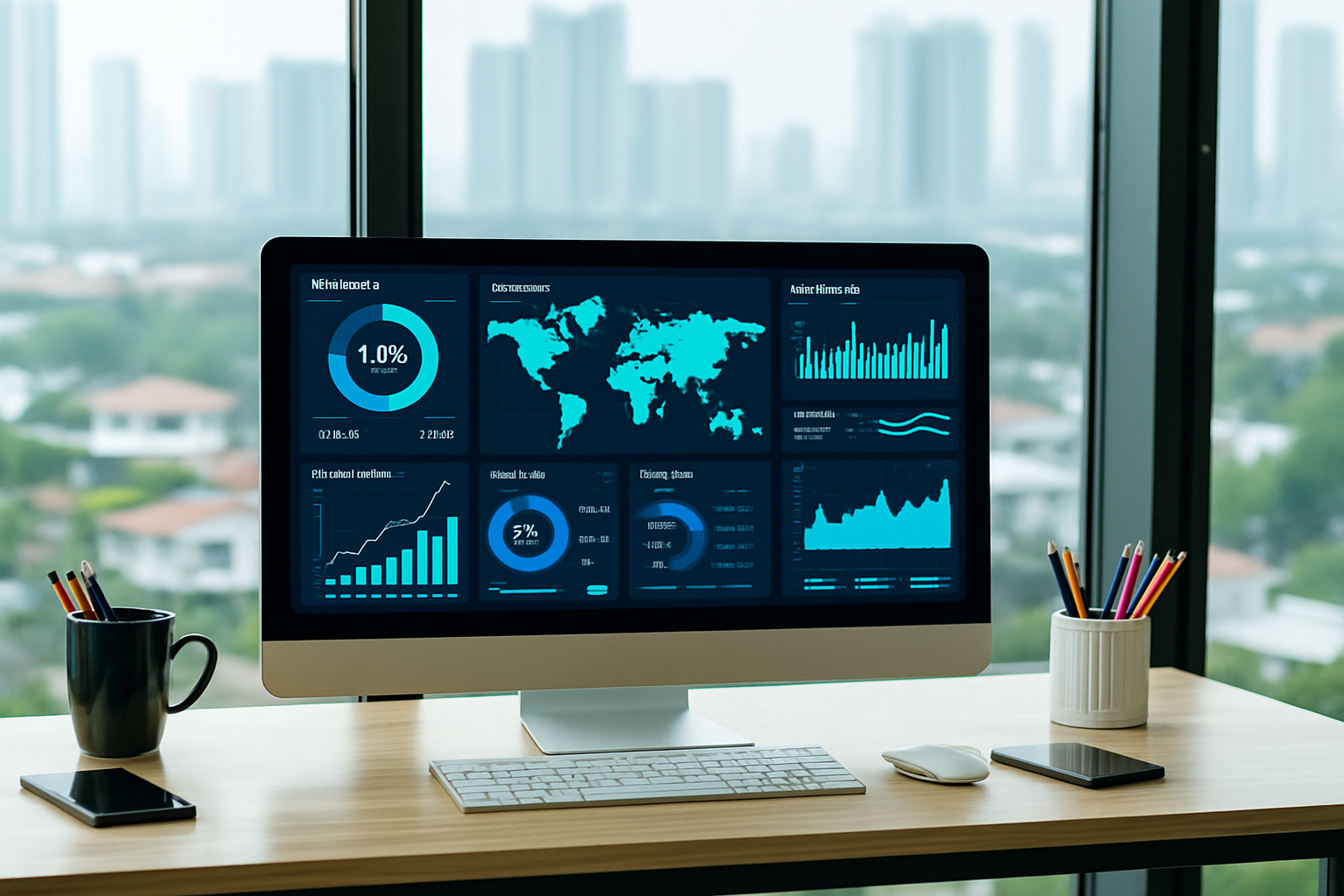Top Tools for PPC Agencies in 2025
Pay-per-click advertising continues to evolve, requiring agencies to use effective tools for managing and optimizing campaigns. Advances in artificial intelligence and automation are transforming keyword research, ad creation, bid management, and analytics. Google Ads remains foundational, while platforms like SEMrush, WordStream, and SpyFu offer specialized features for competitive insights and refined targeting. AI-driven capabilities enable precise bid adjustments and creative testing, improving campaign performance and efficiency. As noted in Search Engine Land, “leveraging automation saves time and uncovers opportunities that manual processes might miss,” highlighting the growing role of these technologies in PPC management.

Tools Shaping PPC Agency Success
PPC tools in 2025 reflect the increasing complexity of campaign management. Keyword research platforms such as SEMrush and SpyFu provide deep competitive analysis, revealing high-value search terms, search intent, seasonal trends, and keyword difficulty. Google Ads serves as the core platform for campaign creation, bid adjustments, and performance tracking, enhanced by AI features that enable smarter budget allocation and real-time optimization.
Ad creation and testing have advanced with platforms like WordStream, which automate the development and split testing of multiple ad variations. Machine learning accelerates the identification of effective creatives, reducing manual effort. Bid management tools now incorporate automation that responds instantly to market changes, competitor activity, and user behavior, maintaining competitiveness without overspending.
Analytics and reporting tools are essential for demonstrating ROI. AI-powered platforms offer predictive analytics that forecast outcomes based on historical data and trends, allowing proactive campaign adjustments. Detailed reporting and actionable insights improve client communication and strengthen relationships. Balancing automation with strategic expertise drives sustained success in PPC management.
Tools Transforming PPC Workflows
Effective PPC management requires tools that streamline every campaign stage. AI and automation now enable data interpretation that reveals actionable opportunities. Agencies benefit from solutions handling bulk campaign edits and nuanced user behavior analysis, allowing swift, precise responses to market shifts.
Google Ads remains central, with AI-powered features like Performance Max campaigns and Consent Mode v2 expanding capabilities. These allow automated bid adjustments and optimized ad delivery across channels with minimal manual input. SEMrush and SpyFu complement this by providing in-depth keyword intelligence and competitor insights, supporting strategic targeting.
Ad creation and testing tools such as WordStream automate ad variation generation and split testing, speeding up the discovery of high-performing content. Analytics platforms like Looker Studio and Supermetrics offer real-time, customizable dashboards integrating data from multiple sources, facilitating accurate tracking and attribution. These insights enable data-driven decisions that improve efficiency and demonstrate clear client value.
To maximize these tools, agencies should tailor their tool stack to workflows and client goals. Automation should support strategic thinking, allowing teams to focus on creative problem-solving and innovation. Regularly updating the toolset helps agencies adapt to new platform features and market trends. As highlighted by Search Engine Land, “leveraging automation saves time and uncovers opportunities that manual processes might miss,” emphasizing thoughtful integration to enhance performance and operations.
Frequently Asked Questions About PPC Tools in 2025
How is AI reshaping PPC tools?
AI-driven platforms analyze large data sets to predict trends, optimize bids in real time, and suggest creative variations tailored to audience segments. This reduces repetitive tasks and enables faster adaptation to user behavior and competition.
What is the balance between automation and human oversight?
Automation excels at identifying patterns and executing adjustments quickly, but human insight remains essential for interpreting results, setting goals, and crafting brand-aligned messaging. Combining both leads to stronger, sustainable outcomes.
Which platforms offer comprehensive competitive intelligence?
SEMrush and SpyFu provide detailed competitor keyword strategies, ad copy, and budget estimates. Integrating these insights with data from Google Ads ensures a complete view of campaign performance.
How have reporting tools evolved?
Modern analytics offer customizable dashboards that consolidate data from multiple sources, delivering clear, actionable insights. Predictive analytics forecast outcomes, enabling proactive recommendations and enhancing client trust beyond basic metrics.
Conclusion
Success in PPC management in 2025 depends on adopting AI-powered tools that enhance keyword research, bid optimization, creative testing, and analytics. Combining automation with strategic expertise allows agencies to work efficiently, uncover hidden opportunities, and deliver clear, data-driven results. Continuously updating and customizing the toolset ensures agencies remain competitive and responsive to client needs.
Original article by Search Engine Land: https://searchengineland.com/top-tools-ppc-agencies-435571
Quote from the article: “leveraging automation saves time and uncovers opportunities that manual processes might miss.”













.png)

